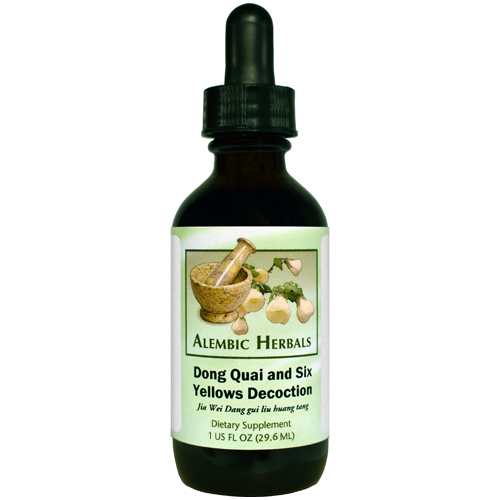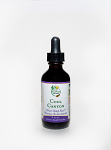| Description |
"When yin is exuberant, then vacuous yang is unable to secure the exterior. As a result there is spontaneous sweating. When yang is exuberant, then vacuous yin is unable to contain (guard the center), therefore there is thief (night) sweating. In people with balanced yin and yang, in the daytime the wei qi/defense qi moves outward into yang and circulates at the exterior. At nighttime, it descends into the yin portion of the body and promotes rest. Yin and yang are complimentary, therefore, only normal sweating occurs. Only in people with yin vacuity fire, during sleep, as defense qi move into its resting stage, debilitated yin is unable to aid yang. Because yin fire is exuberant, it struggles with yin. Therefore yin humor is unprotected and moves to the outside, producing sweat. Upon awakening, the defense qi returns to the exterior, and yin becomes tranquil and the sweating stops." Z'ev Rosenberg: Clinical Guide for Practitioners "Dong Quai and Six Yellows Decoction is recommended in the Secret Treasure from the Orchid Chamber for 'postpartum patients with blood collapse and yin vacuity as well as yang heat steaming.' In addition, it is a great all-purpose formula for menopausal complaints, because of it excellent ability to supplement yin, qi and blood while draining fire. It can be used in recovery from wen bing/warm disease, for chronic infections of the bladder or uterus such as interstitial cystitis or vaginitis, or for recovery from such diseases as pneumonia with residual heat, yin, qi and blood vacuity." - Rosenberg: Clincial Guide "This formula uses Dong gui (Chinese angelica root) to nourish humor and blood and shu di huang (Prepared rehmannia) and Sheng di huang to enrich yin. The use of Huang Qi (Astragalus root) drains the fire from the upper burner and raises the clear yang to circulate defense qi. Huang qin (Chinese skullcap root) drains fire from the upper burner and gallbladder, Chuan huang lian (Coptis rhizome) drains firs from the middle burner, and Huang bai (Phellodendron) drains fire form the lower burner, causing the san huo/three fires to be calmed. Within the cold, yin-natured medicinals, there is the additon of Huang qi, warm, sweet and yang natured. Because yang is struggling with yin, sweating causes depletion of the ying qi/constructioni qi. Therefore the defense follows to become vacuous as well. Therefore, the doubled dose of Huang qi on the one hand resolves the exterior vacuity, and on the other hand secures the Yin (by constraining sweat). In our version of the prescription, we add Fu xiao mai (Wheat seed) to nourish heart yin and constrain sweat, and Zhi mu (Anemarrhena rhizome) to increase fluids in the supper burner and further aid in clearing fire." Rosenberg: Clinical Guide*
|





